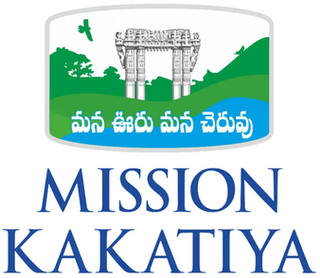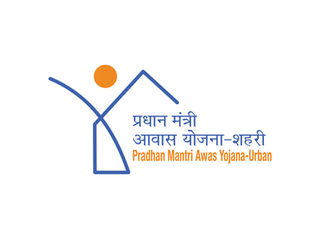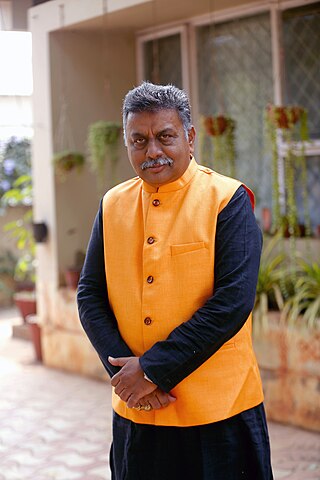Related Research Articles

Software Technology Parks of India (STPI) is an S&T autonomous society under Ministry of Electronics and Information Technology (MeitY) engaged in promoting IT/ ITES Industry, Innovation, R&D, Start-ups, Product/ IP creation in the field of emerging technologies like Internet of Things (IoT), Blockchain, Artificial Intelligence (AI), Machine Learning (ML), Computer Vision, Robotics, Augmented & Virtual Reality, Animation & Visual effect (AVGC), Data Science & Analytics for various domains like FinTech, Agritech, MedTech, Autonomous Connected Electric & Shared(ACES) Mobility, ESDM, Cyber Security, Gaming, Industry 4.0, Drone, Efficiency Augmentation, etc. STPI was established in 1991 by the Indian Ministry of Electronics and Information Technology (MeitY) with the objective of encouraging, promoting and boosting the export of software from India. STPI Headquarters is located in New Delhi with over 60+ Centres spread across the country.

Bhupesh Baghel, popularly known as Kaka, is an Indian politician who served as the 3rd Chief Minister of Chhattisgarh from 2018 to 2023. He was president of Chhattisgarh Pradesh Congress from 2014 to 2019. He represents the Patan constituency in the Chhattisgarh Legislative Assembly since 2013 and from 2003 to 2008. He had been cabinet minister of Transportation in undivided Madhya Pradesh in Digvijaya Singh government from 1999 to 2003. He was first Minister for Revenue, Public Health Engineering and Relief Work of Chhattisgarh.
Social security in India includes a variety of statutory insurances and social grant schemes bundled into a formerly complex and fragmented system run by the Indian government at the federal and the state level. The Directive Principles of State Policy, enshrined in Part IV of the Indian Constitution reflects that India is a welfare state. Food security to all Indians are guaranteed under the National Food Security Act, 2013 where the government provides highly subsidised food grains or a food security allowance to economically vulnerable people. The system has since been universalised with the passing of The Code on Social Security, 2020. These cover most of the Indian population with social protection in various situations in their lives.

Ration cards are an official document issued by state governments in India to households that are eligible to purchase subsidised food grain from the Public Distribution System under the National Food Security Act (NFSA). They also serve as a common form of identification for many Indians.

Mission Kakatiya is a scheme for restoring all the minor irrigation tanks and lakes in Telangana State, India. This scheme aims to renovate 46,531 tanks and lakes, storing 265 TMC water across the state in five years. This is the first program to be taken up by the Government of Telangana after coming into power in June 2014.
Soil Health Card Scheme is a scheme launched by the Government of India on 19 February 2015. Under the scheme, the government plans to issue soil cards to farmers which will carry crop-wise recommendations of nutrients and fertilisers required for the individual farms to help farmers to improve productivity through judicious use of inputs. All soil samples are to be tested in various soil testing labs across the country. Thereafter the experts will analyse the strength and weaknesses of the soil and suggest measures to deal with it. The result and suggestion will be displayed in the cards. The government plans to issue the cards to 14 crore farmers.

Pradhan Mantri Awas Yojana (PMAY) is a credit-linked subsidy scheme by the Government of India to facilitate access to affordable housing for the low and moderate-income residents of the country. It envisaged a target of building 2 crore (20 million) affordable houses by 31 March 2022. It has two components: Pradhan Mantri Awas Yojana(Urban) (PMAY-U) for the urban poor and Pradhan Mantri Awaas Yojana (Gramin) (PMAY-G and also PMAY-R) for the rural poor, the former administered by Ministry of Housing and Urban Affairs and the latter by Ministry of Rural Development. This scheme converges with other schemes to ensure that houses have a toilet, Saubhagya Scheme for universal electricity connection, Ujjwala Yojana LPG connection, access to drinking water and Jan Dhan banking facilities, etc.
Kalyana Lakshmi Scheme or కళ్యాణ లక్ష్మిపధకం and Shaadi Mubarak is a welfare scheme for providing financial assistance for marriages by the Government of Telangana, a novel scheme for all poor people in the state. The scheme gives an assistance of ₹1,00,116, and is aimed at preventing child marriages and support marriage expense for financially distressed families. By March 2018, the beneficiaries stood at 3,90,000.

Mahatma Jyotiba Phule Jan Arogya Yojana, previously Rajiv Gandhi Jeevandayee Arogya Yojana (RGJAY), is a Universal health care scheme run by the Government of Maharashtra for the poor people of the state of Maharashtra who holds one of the 4 cards issued by the government; Antyodaya card, Annapurna card, yellow ration card or orange ration card. The scheme was first launched in 8 districts of the Maharashtra state in July 2012 and then across all 35 districts of the state in November 2015. It provides free access to medical care in government empanelled 488 hospitals for 971 types of diseases, surgeries and therapies costing up to Rs.1,50,000 per year per family. As of 17 January 2016, around 11.81 lakh procedures amounting to Rs.1827 crore have been performed on patients from 7.13 lakh beneficiary families which includes over 7.27 lakh surgeries and therapies. The scheme is called successful amid some allegations of hospitals directly or indirectly causing patients to incur out-of-pockets expenses on some part of the treatment.

Pradhan Mantri Ujjwala Yojana was launched by Prime Minister of India Narendra Modi on 1 May 2016 to distribute 50 million LPG connections to women of Below Poverty Line (BPL) families. A budgetary allocation of ₹80 billion (US$1.0 billion) was made for the scheme. The scheme was replaced by the Ujjwala Yojana 2.0 in 2021.
Kalvakuntla Taraka Rama Rao, commonly known as KTR, is an Indian politician and Member of Legislative Assembly (MLA) of Telangana Legislative Assembly. He is a former Minister for Municipal Administration and Urban Development, Industries and Commerce, and Information Technology, Electronics and Communications of Telangana. He represents Sircilla assembly constituency in the Telangana Legislative Assembly, he is also the working president of the Bharat Rashtra Samithi.

Ravi Vadlamani is a chartered accountant, and elected as Director on the Board of Rotary International. He is past District Governor Rotary International (Dist.3150).
Aasara pension is a pension scheme by the Government of Telangana. It is a welfare scheme of pensions to old people, widows, Goud community, elephantiasis patients, AIDS afflicted people, physically disabled and beedi workers. By March 2018, the number of beneficiaries stood at 42 lakhs.
Rythu Bandhu scheme, also known as Farmer's Investment Support Scheme (FISS), is a welfare program to support farmer’s investment for two crops a year by the Government of Telangana. The government is providing 58.33 lakh (5.8 million) farmers ₹5000 per acre per season to support the farm investment, twice a year, for rabi (winter) and kharif (rainy) seasons. This is a first direct farmer investment support scheme in India, where the cash is paid directly.

Double Bedroom Housing scheme or 2BHK scheme is a housing project designed by the Government of Telangana. The scheme aims to make the city of Hyderabad a slum-free city by providing free-of-cost housing to the shelter-less poor in rural and urban areas. The plan aims to provide 2.72 lakh by March 2019, followed by an additional 3 lakh by 2024. Nearly 100,000 houses or high-rise flatlets are set to be completed in the year 2021.

Ayushman Bharat Pradhan Mantri Jan Arogya Yojana(PM-JAY) is a national public health insurance scheme of the Government of India that aims to provide free access to health insurance coverage for low income earners in the country. Roughly, the bottom 50% of the country qualifies for this scheme. People using the program access their own primary care services from a family doctor and when anyone needs additional care, PM-JAY provides free secondary health care for those needing specialist treatment and tertiary health care for those requiring hospitalization.
Pradhan Mantri Kisan Samman Nidhi is an initiative by the government of India that give farmers up to ₹6,000 (US$75) per year as minimum income support. The initiative was announced by Piyush Goyal during the 2019 Interim Union Budget of India on 1 February 2019. The scheme has cost ₹75,000 crore per annum and came into effect December 2018. PM Modi releases 16th installment of PM Kisan Yojana in Maharashtra.
Pradhan Mantri Garib Kalyan Anna Yojana is a food security welfare scheme announced by the Government of India on March 26 2020, during the COVID-19 pandemic in India. The program is operated by the Department of Food and Public Distribution under the Ministry of Consumer Affairs, Food and Public Distribution. But the nodal ministry is Ministry of Finance.The scale of this welfare scheme makes it the largest food security program in the world benefiting 81.35 crore in India.
Dr. YSR Aarogyasri is an upgradation of Andhra Pradesh's government healthcare scheme Aarogyasri which was launched by the late chief minister Y. S. Rajasekhara Reddy in 2007. The scheme has been revamped into Dr. YSR Aarogyasri by chief minister Y. S. Jagan Mohan Reddy in January, 2020 upgrading the scheme by adding new benefits to it.
References
- ↑ "Telangana's sheep distribution scheme a major success - Telangana Today".
- ↑ "Sheep distribution programme today". The Hindu. 20 June 2017. Retrieved 20 February 2020.
- ↑ "Archived copy". Archived from the original on 7 May 2018. Retrieved 18 March 2018.
{{cite web}}: CS1 maint: archived copy as title (link) - ↑ "Sheep distribution scheme going great guns in Telangana". telanganatoday.com. Archived from the original on 19 March 2018.
- ↑ "Telangana has distributed over 23 lakh sheep: CM". Business Standard India. 2 October 2017.
- ↑ "Sheep distribution: Two officials suspended". The Hindu. 28 October 2017.